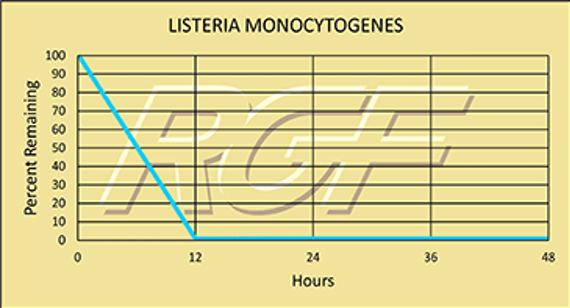
Listeria monocytogenes is a bacterium that causes listeriosis. They are commonly found in soil and water. Animals can carry the bacterium without appearing ill and can contaminate foods of animal origin, such as meats and dairy products. Most human infections follow consumption of contaminated food such as uncooked meats; unpasteurized milk and cheeses, and cooked or processed foods such as ready-to-eat meats. Unlike most bacteria, Listeria can grow at refrigerated temperatures. The disease primarily affects older adults, pregnant women, newborns, and adults with weakened immune systems.
Source: CDC Centers for Disease Control
Tested by Kansas State University
Steris Labs, KAG/Eco Labs
